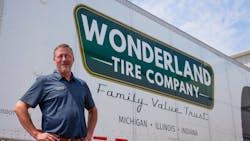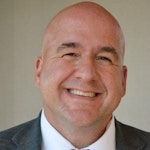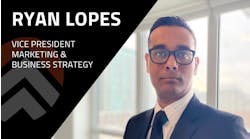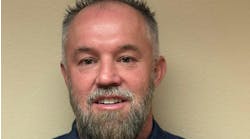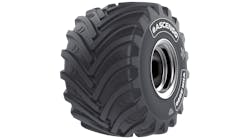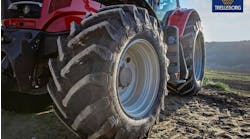Jon Langerak knows exactly when he will step down as CEO and president of Wonderland Tire Co. — five years from now, after he turns 60.
When that time comes, he will move into a consultant role at the dealership, having handed Wonderland Tire’s reins to its next generation of owners, who will come from within the Langerak family.
By then, those owners will have benefitted from years of systematic preparation — as well as Jon’s steady, unflagging mentorship — which will help them take the 17-location, Byron Center, Mich.-based company to its next level of development.
However, between now and then, Jon — the architect behind Wonderland Tire’s phenomenal growth over the last two decades — says he has a lot of work to do. That includes keeping the dealership on its current trajectory. Under Jon’s direction, Wonderland Tire has enjoyed 10% to 15% revenue growth year after year.
“If I gradually wind down, the company will start coasting,” says Jon. “You can’t coast and maintain what you have. You really can’t. If you aren’t growing, you’re dying.”
Complacency has never been part of Jon’s vocabulary or thought process — and that's one of the many reasons why he’s the recipient of MTD’s Tire Dealer of the Year Award.
‘A Really Good Mix’
Other than a short stint working on a farm when he was in his teens, Jon has spent his entire career at Wonderland Tire.
The dealership — whose name is a nod to Michigan’s old slogan, “Water-Winter Wonderland” — was formed in 1978, when Jon’s uncles, Henry and Earl Kamps, bought Clyde Jewell Tire, a small, single-location dealership in Grand Rapids, Mich. (Their father, Bill Kamps, along with his partner, Jerry DeVries, had opened a tire dealership, Kamps-DeVries Tire, 18 years earlier.)
Jon joined Wonderland Tire when he was 15. His younger brother, Dave Langerak, now Wonderland Tire’s chief operating officer and co-owner, followed a few months later.
“Our very first job was patching tubes,” says Jon. “There was a pile in the corner and I could barely reach to the top of it, that’s how many there were.”
In those days, Wonderland Tire was a small operation. That would change as the dealership entered its first big growth phase, which was driven, in part, by Jon.
By 1992, the dealership was expanding out of its home in western Michigan and into other areas. Earl Kamps had opened a Wonderland Tire store in Calumet City, Ill., a Chicago suburb, giving Wonderland Tire two locations. The outlet was — and remains — extremely successful. Jon, who had moved into a sales position at Wonderland Tire, knew that the dealership was capable of even more.
Competitors were starting to take notice of the company, he says. “I remember when a new dealership came to town. The man who ran that location said he would put us out of business within a year. Henry and I kind of chuckled about it and said, ‘We’ll see.’”
As Jon’s responsibilities grew, he came to the realization that he wanted to become an owner — if not at Wonderland Tire, then somewhere else.
“In the early-'90s, me and my brother, Bill, who also was working in the family business and running our retread plant, decided we were going to go out on our own and start our own retread plant. We started to buy and store our own equipment.”
Henry and Earl were unaware of the effort. “We were young and not sure Henry would allow us to be owners (of Wonderland Tire) at the time,” says Jon. “We said, ‘If we’re going to own something, we’re probably going to have to build it ourselves.’”
Along the way, Jon and Bill struck up a friendship with Bob Majewski, founder of the AcuTread mold cure retread system. They began selling AcuTread retreads to local fleet customers, who loved the product.
Soon, the opportunity to become an AcuTread retreader emerged. Buy-in, at the time, was $1 million — around $1.8 million in today’s money.
Jon, Bill and Dave took the proposal to Henry and Earl and convinced them to take the plunge under the Wonderland Tire umbrella. “Henry and Earl said, ‘If we’re going in this direction, we want you guys to have skin in the game, because if this fails, it will bury the company,'” says Jon. “It was a big pill to swallow.”
Henry and Earl, who remained Wonderland Tire’s principal owners, “gave each of us 8% of the company.”
Bill eventually stepped away from the family business “and Dave and I took his 8%. Henry and Earl knew that if we were owners, we were going to work toward making AcuTread a successful venture. Once we became owners, they empowered us. Henry, in particular, saw the energy we had.”
AcuTread shook up the markets where Wonderland Tire operated and become a major growth catalyst for the dealership.
Building on the success of AcuTread, the dealership began to expand in other ways, and made its first acquisition — the original Kamps-DeVries Tire store in Greenville, Mich. — in 2004.
“I saw that tire dealers in this area were aging,” says Jon. “So I approached Henry and said, ‘We should try an acquisition.’ He said, ‘Who do you want to buy?’ and I said, ‘DeVries Tire.’ We talked with the (dealership’s) owner, Dave DeVries, and he said, ‘I want to sell.’ Henry said to me, ‘If we’re going to do the acquisition, you’ll have to run it for a year.’ We took over operations and I started going up there every day, running it and managing it.”
Jon quickly restored the struggling store to profitability. “I knew if we could make that work, acquisition was an option if we wanted to expand into other areas. We wouldn’t have to start from the ground up.”
Jon’s hunch proved to be on the money and Wonderland Tire continued to acquire other dealerships. In 2007, the company purchased Valley Retreading, a dealership in Grand Rapids, plus Lawens Tire, a dealership in Six Lakes, Mich. That year, Wonderland Tire also opened a greenfield location in Zeeland, Mich., not far from its headquarters in Byron Center.
As Wonderland Tire grew, Jon and Dave’s responsibilities multiplied. In 2008, they became majority shareholders in the dealership. (Today, each has a 46% stake in the company. Earl, who will retire at the end of 2023, owns 7%. Henry, while no longer a shareholder, still advises Jon and Dave and helps in certain areas of Wonderland Tire’s business.)
With Jon and Dave now at the helm, Wonderland Tire continued to expand. In 2015, the dealership acquired Reed’s Tire, a local company, and then established a presence in northwest Michigan by acquiring J.I.S. Tire Service.
The same year, Wonderland Tire acquired Root’s Tire Service, giving it a foothold in northern Michigan. In 2017, the dealership purchased Cooper’s Tire & Service, which was based in northern Indiana.
But by far, Wonderland Tire’s biggest acquisition came in 2021 when it purchased Sumerel Tire Service Inc., a Newport, Ky.-based dealership that had locations in Kentucky, Tennessee and Ohio. “I talked to (its owner), Bob Majewski, for almost three years before he committed,” says Jon.
The deal gave Wonderland three busy retread plants far away from its base.
Wonderland Tire’s growth convinced Jon and Dave that they needed to develop a more robust corporate structure. “We don’t have layers of management, which can become very clunky and clumsy,” says Jon. “We have our management team,” which includes Jon and Dave, plus Jim DeVries, the dealership’s chief financial officer.
“Then we have three other people who report to us: Seth Kamps, our vice president of purchasing and inventory; Ryan Seidel, our director of operations; and Jason Cleveland, who’s our vice president of manufacturing. Everybody in the company answers to those six people.”
“In 2015, we put together an organizational chart showing where we were and the positions we’d have to hire for. We recognized that the company’s growth had pushed our structure to the limit.”
The idea wasn’t necessarily new, according to Dave. “Jon and I had been part of the management group at Wonderland Tire, going back to Henry’s ownership. Henry thought like the executive of a big company, even when we were a small company. Even before we became owners, we thought a lot about structure and policy and did a lot of things early on that some companies who are bigger than us today haven’t done.”
With a new, more sophisticated structure in place, “we advertised positions within the company first and if someone had the skills and desire, we interviewed them," says Jon. "We have a specific company culture. If we can hire someone from inside, they already know that culture and know what we expect. If we bring someone in from the outside, it’s not that easy.”
Wonderland Tire now employs nearly 200 people — a mix of people who have risen through the ranks of the company and employees brought in from the outside. “We’ve become more of a bottom-up company,” says Jon. “Before that, Dave and I wore all the hats. We had to call all of our meetings, We had to tell people what to do. We now have a really good mix. We have our hand on the pulse of the company, but others are empowered to run their own areas.
“When we bought Cooper’s Tire, I was at that store every week, working with the manager to get it off the ground. I don’t get that involved anymore. I have a saying, which is ‘a leader needs to work on his business, not in his business.’ More and more, I’m living by that. We also tell our managers, ‘Don’t be a firefighter. You can do more good for the company by taking a big-picture approach.’”
The Power Of ‘Patient Capital’
That big-picture approach applies to nearly every aspect of Wonderland Tire’s business, says Jon. For example, Jon and Dave give struggling dealerships that Wonderland Tire acquires five years to turn a profit. But the brothers don’t leave that to chance.
“If a store isn’t profitable, we put the right manager in and put the right culture in,” says Jon, who adds that some locations “have taken a full five years” to get out of the red.
When integrating new stores into Wonderland Tire, the Langeraks provide plenty of runway “so we don’t have to change everything quickly because that makes employees very jumpy. And it wrecks morale. We say, ‘OK, what are we going to change this year?’ Then we build rapport with employees while doing that.
“We build a business plan for each store, which contains projections for sales and where we want to be in terms of profits. We also did that for a new store” that Wonderland Tire opened down the street from its corporate office in Byron Center a few years ago.
The store, which offers a mix of consumer and commercial tires, is three times larger than its predecessor in the area. (Seventy-five percent of Wonderland Tire’s business is commercial, says Jon. The rest is retail.)
“We were afraid that (the store change) would negatively affect profits, so we built a projection that said after five years, the manager of that new store would be back to the profitability level” of the outlet it replaced. “He hit it in two years.” (The store is on track to turn more than $8 million in sales this year. Wonderland Tire’s next most profitable store — its location in Calumet City, Ill. — is projected to generate nearly $6.6 million in sales.)
Giving things time to develop without demanding immediate returns is part of a philosophy that Jon calls “patient capital. I learned the idea of patient capital from another business owner who talked about the importance of planning your exit. He said you can do that when you have patient capital.
“Big companies, when they make a decision to do something, give themselves a very short time to do it,” says Jon. “In family business, that’s different. When we do new projects or add new services, we can take a longer view. We give ourselves time. We’re not focused on getting it done quickly, but rather getting it done right.”
AcuTread gave Jon his first opportunity to apply the patient capital approach. “We had a five-year projection there and blew that out of the water. When we bought Reed’s Tire, we got into auto service work for the first time. That was another instance when we integrated a new service and took a long-term approach to it.
“Since then, we’ve implemented auto service at all of our stores. For us, it was a new idea. It was a leap of faith. We said, ‘We need to experiment with this, take our time and see if we can become successful.’ My brother, Dave, is in operations, so it was his baby. And he’s done a wonderful job with it. That’s become a new area of our business that’s bringing in revenue.”
Jon says he’s seen other companies, including some competitors, demand to see returns too quickly after implementing a new service or opening a new location. “If you push too hard, bad things happen — at least that’s what I’ve found.”
Moving slowly helps win new customers, too — especially on the commercial tire side. Steelcase, an office equipment manufacturer, is based in Grand Rapids. Jon landed that account for Wonderland Tire. “It took me nine years to pick that customer up. I would go in, solve little problems here and there and put some tires in. Eventually, the company gave the whole account to us.
“I tell our salesmen, ‘If you’re number two, you’re going to be number one eventually.’ This also allows us to charge the right price for what we provide. We don’t have to cut prices in order to pick up business.”
Patient capital also helps with employee retention, according to Jon. “It allows a person to make a career at Wonderland. We have people here whom we hired when they were 18 and now they’re 50 years old.”
And it has allowed Wonderland Tire to cultivate a pipeline of potential acquisitions. Jon maintains a list of tire dealerships within a 75-mile radius of Wonderland Tire’s headquarters whose owners are aging. He personally stays in touch with them, checking in from time to time. “If they don’t have someone who wants to take over, we can become a good option for them,” he says. “They know who we are and in some cases, we’ve already done business with them.”
“We were always taught that if we aren’t moving forward, we’re moving backwards,” says Dave. “There’s no in-between. At one point, I would have been happy being a small, 25-person company. But Jon would not have been. He wouldn’t have allowed it.”
‘You Have To Reinvest’
“My management style boils down to this: hire people who are better than you, give them the tools they need and say, ‘Run this thing,’” says Jon. “One of my strengths is that I’m a good delegator. I know when it’s time to pass (roles or duties) to the right people. I realize that if they’re going to feel empowered and do a meaningful job, I can’t always be involved.
“Dave is more hands-on. He’s very detail-oriented. My brother’s philosophy is ‘Employees respect what you inspect,’ so he lays out things for people and he monitors that. I’m not that way. I feel like I’m stepping on people’s toes. But I guess over the years, that’s why we’ve worked so well together.”
Jon has seen owners of other businesses refuse to relinquish control. This often backfires on them, he says. “In a family business, it’s a weakness to not be able to give up control or put people in place to do the work for you. We’ve watched and talked with a lot of families who own businesses and control can be an issue. It’s also why so many people can’t get out. They either die in the saddle or sell when they’re 75 years old.
“Many people who own businesses have that ‘driver profile,’” says Jon. “They’re aggressive. They have to be doing something. I have that personality. I think it’s part of the entrepreneurial spirit.”
Jon says he’s always looking at the competitive landscape and monitoring what other dealerships in Wonderland Tire’s markets are not doing, instead of what they are doing. “We’re always looking at where there’s a niche in the market” that isn’t being addressed. “And we’re always trying to develop new niches.”
Nearly 20 years ago, Jon noticed that many cement mixer fleets in Wonderland Tire’s markets “were running big, wide tires. So we built a tread rubber mold for that type of tire, which enabled us to pretty much own that business in that area. It was a niche that allowed us to corner a market.
“More recently, we got into truck mechanical work. And we’re going to be putting up a new store in Holland, Mich., and we’ll have to determine if we’ll put an alignment pit in (there) or not.”
It has always been Wonderland Tire’s philosophy to plow a significant amount of revenue back into the company — dating back to when Henry and Earl were majority owners. “That’s the whole patient capital thing again,” says Jon.” We have a long-term vision and a long horizon. If you’re going to do this long-term, you have to reinvest. Every September, at our manager’s meeting, they bring in a list of assets they’ll need in the next year and we get to work on it. We buy four or five new service trucks a year. We spend millions. We buy the right stuff and the good stuff.”
Jon says some of Wonderland Tire’s competitors have not been as aggressive or proactive in maintaining and updating their equipment. “We call that ‘frugalizing,’ when you don’t spend money on the things you need in order to run a good business. I don’t understand that concept. This business means a lot to us and we’re not going to skimp. This also is something that allows us to keep employees long-term. We give them the right equipment.”
“Our dollar amount of investment is phenomenal,” says Dave. “We have a $2 million asset purchase list this year. We like doing things right once and not having to duct tape it later. I tend to take a longer time than Jon to do my research and reach decisions. Jon is more of a gut reaction guy. And his gut reaction is typically right. I realize that it has to be a combination of both. Some things have to be based on your gut and your experience.”
Jon also isn’t afraid to make tough decisions, says Dave. When the brothers became majority owners in Wonderland Tire, the Great Recession hit. “We were challenged to make a profit that year,” says Dave. “We went from being very profitable to being forced to lay off 10% of our workforce. I remember Jon coming into my office and saying, ‘Dave, we have to lay off 10% of our people.’ I did not want to do it. Those are the kinds of decisions Jon’s good at.
“Jon and I have taken some personality tests and I’ve learned some things about him that I didn’t know. He keeps a lot of his thoughts to himself. He isn’t the kind of owner who wants to be in the limelight. He likes to work behind the scenes. He lets people run their areas, while he keeps an eye on the big picture. But when Jon makes a decision, there’s no turning back.
“He’s very self-assured, but at the same time, he’s willing to collaborate,” says Dave of Jon. “He has the patience to talk through ideas and hear other people out. That’s something he’s developed as an owner. But in the end, he’s very willing to make that final decision.”
Dave says Jon’s personality is a blend of traits from both the Langerak and Kamps families. “The Kamps family has that entrepreneurial gene. There are lot of Kamps in western Michigan who are related to us and have their own businesses. But Jon also has a good dose of the Langerak side. Our dad was very contemplative and soft-spoken. Jon has that side, as well. I tend to be very task-oriented. Jon is less focused on tasks and lists. He has one or two big things he wants to get done that day, but not a big, long list of things. And when he’s done, he’s satisfied.”
‘You Know Where Jon Stands’
Jon and Dave complement each other “and you need that to be successful,” says Seth Kamps. The brothers also can demonstrate tough love when needed, he adds.
“I recall at one point, as a young store manager, there were problems with my building, problems with my trucks and problems with my employees,” says Kamps. “I was managing a store that was the farthest away from our corporate office. I was at least an hour away from our nearest store. I sometimes felt like I was on an island. I remember calling Jon and Dave and saying, ‘I have this problem and that problem,’ and the response I got was kind of surprising: ‘This is your store. You have to figure it out.’ That taught me to take the final line of responsibility.”
The brothers also are receptive to recommendations and new ideas, says Ryan Seidel, Wonderland Tire’s director of operations. “We used to have an old computer system. I said, ‘Jon, if continued growth is the idea, this isn’t a scalable system.’ So Jon formed a committee and told us, ‘You will pick a new system.’ And he gave us a deadline. From the time he said those words to the time we had a new system in place was about a year, which is pretty quick. Jon and Dave don’t accept substandard.
“You always know exactly where Jon stands,” says Kamps. “He’s always straightforward in his conversations and relationships. He speaks his mind and you never have to second-guess where he is or what he’s thinking. Jon’s true to his colors and he isn’t going to let poor performance slide. He’s going to deal with it, but he’s also willing to teach.
“Jon’s not going to hang you out to dry if you make a mistake. He’ll tell you what you did wrong and he’ll encourage you. He’s not out to get you. He wants everyone to succeed. One thing he says, though, is, ‘If you’re not a leader, you’re following someone.’ As business owners grow older, they tend to play things more safely. They don’t take as many risks. Jon is a calculated risk-taker.”
Jon also can be a calming influence, according to Seidel. “COVID-19 was a super-chaotic time and in the early days, some of us were kind of panicking. We were wondering, ‘Will we have to lay people off? Will we have to close?’ Jon brought (a sense of peace) to the organization. He said, ‘Calm down. It’s going to be OK.’ He was able to settle us down and bring us back to reality. And we kept taking those forward steps.”
“Jon encourages me all the time,” Seidel continues. “He says, ‘Make sure you‘re buying the guys lunch.’ We take our store managers on fishing trips. He pushes me to do those things. In my 20 years in the tire industry — all the different companies I’ve seen — this is the company that cares the most about its people. And it’s not just words. It’s the actions that show they care.”
“Jon is an excellent leader” who has earned the respect of Wonderland Tire’s employees, says Jim DeVries, the dealership’s CFO. “That’s his greatest attribute. He started when he was a teenager, pushing a broom and working in a store. He busted tires, he was in outside sales, he’s worked in our plants — he's done it all, so he’s very relatable in that regard.
“He’s also the opposite of a micro manager,” DeVries continues. “He’s willing to let his people take risks. He’s willing to let them fail and learn from those mistakes, without getting upset. He lets them do their thing. Jon has great integrity as a person and that’s something the other owners have, as well. You can see how our employees respect them and are willing to do whatever they need to do.”
Coaching The Next Generation
“At the age of 60, I’m supposed to put in my replacement and sell the majority of my shares” in Wonderland Tire, says Jon, who adds that Dave has made the same commitment. “Then we’ll work in the company as mentors and consultants for another five years — making sure the transition to new ownership is smooth.”
That new ownership will come from Wonderland Tire’s “next-gen” group, which includes members of the Langerak and Kamps clans. The youngest next-gen group member is 21. The eldest, Seth Kamps, is 30 years old.
“In 2004 or 2005, we started to talk about succession and that it had to be planned thing,” says Jon. This was driven, in part, by observing other tire dealers who didn’t have a succession plan or waited too long to think about one. Jon and Dave didn’t want to put Wonderland Tire or its employees in that position.
In an internal Wonderland Tire document written for next-gen group members, Jon writes, “Very few family businesses survive until the fourth generation. However, family businesses also have the capability to be very resilient in comparison to their non-family counterparts. Wonderland Tire needs good governance and management, long-term thinking, profitability and strong foundations, providing meaning and fulfillment for the family, as well as committed owners, engaged employees and family members.”
Members of Wonderland Tire’s next-gen group undergo a rigorous, multi-year training program, starting when they are 12 to 15 years old, sweeping shop floors and cleaning offices. After they master these tasks, they graduate to the next level, which is working at a retail store — typically at the age of 16 or 17. From there, they advance to the next level and so on, finally completing the program around the age of 22.
“We make them go through a program, rather than throwing them headlong into the business without any direction,” says Jon. “It’s part of our job to make sure the next generation of ownership is qualified.”
Some members of the next-gen group are more geared toward management than ownership, he adds. “We make them take a personality test, so they can understand who they are.”
Some, he says, have discovered talents or interests they didn’t know they possessed. “It happened recently with my son, Trevor. He went through the Dale Carnegie program this summer and did very well — so well, in fact, that (representatives from Dale Carnegie) came to our next-gen meeting and presented him with the program’s highest achievement award. For him, that was an eye-opener. He said, ‘OK, I can influence people.’”
Putting next-gen members through extensive training helps non-family managers and employees respect them. “We want them to have a well-rounded understanding of the business and they also will have the respect and trust of their peers and employees by the time they take over. Part of that process is giving each an area of responsibility and letting everyone see that they can manage it and make it better.
“I think that’s why the transition between Henry and Earl and David and I went so well,” says Jon. “Dave and I were involved in the business right away. We worked shoulder to shoulder with our other employees. They saw we had the ability to do this. If employees see you just sitting there with your feet up, there will be resentment.
“There’s also a certain excitement among our employees that we’re planning for the next generation and we’re doing it deliberately. When employees see that, they appreciate it. There’s a saying in the family business world called ‘shirtsleeves to shirtsleeves in three generations.’ The founder builds the business, the second generation maintains the business and the third generation destroys the business. Then you’re back to shirtsleeves again. That isn’t what’s going to happen here.”
Next-gen members also serve on Wonderland Tire’s family council. Every other year, the dealership holds a week-long “family summit” at an off-site location. (The company’s latest summit took place last month.)
Next-gen group members plan the event, “come up with an agenda and put it all together,” says Jon. During the event, each member is required to provide updates on his or her area of responsibility via a formal presentation.
“We’re not easy on them,” says Dave. “They’re not going to have anything handed to them on a silver platter.”
“Several years ago, we asked them, ‘Where do you want Wonderland Tire to be in five years?’” says Jon. “They came up with a plan. I looked at it and said, ‘That’s less than 5% growth each year. If we grow at that rate, we’ll miss the mark.’
“We don’t want to grow just for the sake of growing. We want it to be profitable growth. We emphasize to them that if you’re just going to grow, but not increase profits, that’s probably not a good strategy. We emphasize that if you’re going to grow, you have to grow profitably because you have to reinvest in the business.
“We also talk about continual learning. You never stop developing yourself or others. We try to promote that because we’ve seen it in ourselves. I’m not the same person I was in 1988.”
As next-gen group members’ business acumen has developed, they’ve identified new business opportunities for Wonderland Tire, which have been presented to Jon and Dave. “And that’s what we want,” says Jon.
“When we see a need, there’s nothing holding us back. We want to always look for opportunities. If a customer needs something — and we believe there’s a market for it — we're going to pursue it. I see that as being important and I think the next generation of ownership sees that as being important. They have the energy to do it. We just have to harness that energy and the way we do that is to make them owners and managers.”
“Jon and Dave haven’t named their successors,” says Kamps. “And they’ve made it clear that not everyone is going to be an owner. But I know there’s going to be a position for me here. Wonderland is very stable. Jon and Dave never make rash decisions. And they’re really looking after our professional and personal growth.”
Guaranteed Satisfaction
“We’re not in business just to make money,” says Jon. “We have close to 200 employees and they all have families. That’s a motivator for me. I wouldn’t want them to be hurt by me not running the business in a good way. And that’s grown on me over time. The older I get, the more I recognize that.”
At the same time, Jon says that it’s “very important to enjoy what you’re doing.”
Jon looks forward to continuing to develop Wonderland Tire’s next group of owners and managers. In the meantime, he has no plans to ease off the gas pedal. There are new stores to open and other dealerships to acquire. There are new services to introduce, new products to sell and new customers to win. There are advancements to pursue and new goals to achieve.
“We’re looking at this thing generationally,” says Jon. “And we’re doing the things needed to keep Wonderland Tire moving forward. There’s great satisfaction seeing our family and our employees’ families grow and develop and knowing I’m a part of that. If it was just dollars and cents, it wouldn't be any fun for me. There wouldn’t be any satisfaction in that.”
For more about Jon Langerak, MTD's 2023 Tire Dealer of the Year, see:
'Employees Are the Heartbeat of Wonderland Tire'
Wonderland Tire's Next Leaders Are Learning the Ropes
How AcuTread Has Fueled Wonderland Tire's Growth
MTD Tire Dealer of the Year Profile: Jon Langerak
Special thanks to the following companies that supported the 2023 MTD Tire Dealer of the Year award program: ASA Automotive Systems Inc., Central Marketing Inc., Falken Tires, Gateway Tire Co. Inc., Hankook Tire, Hunter Engineering Co., Mercantile Bank, Michelin North America Inc., Myers Tire Supply, Net Driven, Pirelli Tire, Pre-Q Galgo Corp., Rubber-Inc., Schrader TPMS Solutions, TECH, TreadWare and Vipal Rubber Corp.
